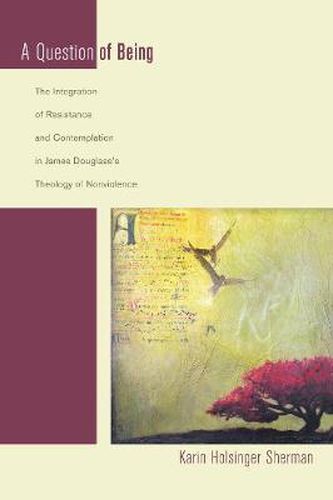Readings Newsletter
Become a Readings Member to make your shopping experience even easier.
Sign in or sign up for free!
You’re not far away from qualifying for FREE standard shipping within Australia
You’ve qualified for FREE standard shipping within Australia
The cart is loading…






This title is printed to order. This book may have been self-published. If so, we cannot guarantee the quality of the content. In the main most books will have gone through the editing process however some may not. We therefore suggest that you be aware of this before ordering this book. If in doubt check either the author or publisher’s details as we are unable to accept any returns unless they are faulty. Please contact us if you have any questions.
James Douglass’s writings have been recognized as among the most challenging and inspiring explorations of nonviolence and Christian discipleship in the last century. Throughout his career, Douglass has argued forcefully for the integration of contemplation and resistance, theology and cultural critique, spirituality and prophetic involvement. His work has inspired many of the key figures in recent debates regarding just war, Christian nonviolence, and radical discipleship and continues to be highly relevant in our contemporary situation. In A Question of Being, the first book-length treatment published on Douglass’s writings, Karin Holsinger Sherman provides an introduction to and engagement with this important body of work through an exploration into its contextual history, influences, and main themes. Moreover, the author argues that these themes work together to create an ontology of nonviolence, an ontology that integrates the forces of resistance and contemplation so important to Douglass. The book begins by examining Douglass’s biography and three broad historical trajectories that give context to his thought: the fusion of Christianity and American nationalism in the early Cold War period; the emergence of cultural critique in the late fifties and early sixties, and the Catholic pacifist tradition; and the post-1972 period of disillusionment. Holsinger Sherman then considers the lives and thought of Dorothy Day, Mahatma Gandhi, and Thomas Merton, as well as their unique intellectual and exemplary influence on Douglass’s ideas. After explicating the themes of the cross and the kingdom as they developed chronologically in Douglass’s writing career, this book draws together Douglass’s thought to reveal an ontology of nonviolence. In her conclusion, Holsinger Sherman argues that this ontology of nonviolence is the key to understanding Douglass’s integral theology of contemplation and resistance.
$9.00 standard shipping within Australia
FREE standard shipping within Australia for orders over $100.00
Express & International shipping calculated at checkout
This title is printed to order. This book may have been self-published. If so, we cannot guarantee the quality of the content. In the main most books will have gone through the editing process however some may not. We therefore suggest that you be aware of this before ordering this book. If in doubt check either the author or publisher’s details as we are unable to accept any returns unless they are faulty. Please contact us if you have any questions.
James Douglass’s writings have been recognized as among the most challenging and inspiring explorations of nonviolence and Christian discipleship in the last century. Throughout his career, Douglass has argued forcefully for the integration of contemplation and resistance, theology and cultural critique, spirituality and prophetic involvement. His work has inspired many of the key figures in recent debates regarding just war, Christian nonviolence, and radical discipleship and continues to be highly relevant in our contemporary situation. In A Question of Being, the first book-length treatment published on Douglass’s writings, Karin Holsinger Sherman provides an introduction to and engagement with this important body of work through an exploration into its contextual history, influences, and main themes. Moreover, the author argues that these themes work together to create an ontology of nonviolence, an ontology that integrates the forces of resistance and contemplation so important to Douglass. The book begins by examining Douglass’s biography and three broad historical trajectories that give context to his thought: the fusion of Christianity and American nationalism in the early Cold War period; the emergence of cultural critique in the late fifties and early sixties, and the Catholic pacifist tradition; and the post-1972 period of disillusionment. Holsinger Sherman then considers the lives and thought of Dorothy Day, Mahatma Gandhi, and Thomas Merton, as well as their unique intellectual and exemplary influence on Douglass’s ideas. After explicating the themes of the cross and the kingdom as they developed chronologically in Douglass’s writing career, this book draws together Douglass’s thought to reveal an ontology of nonviolence. In her conclusion, Holsinger Sherman argues that this ontology of nonviolence is the key to understanding Douglass’s integral theology of contemplation and resistance.